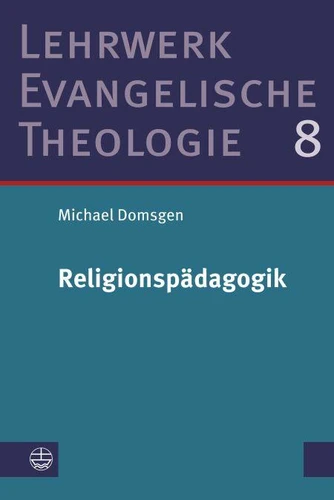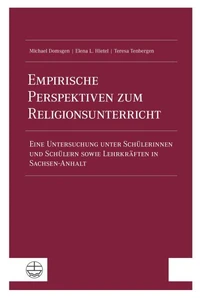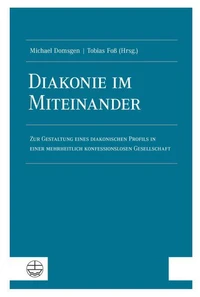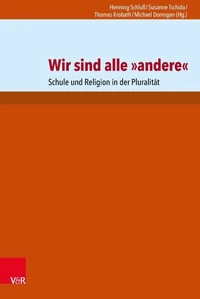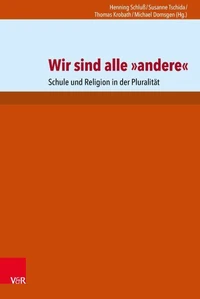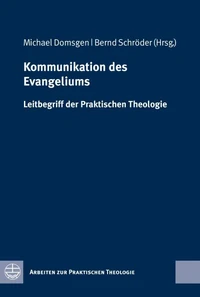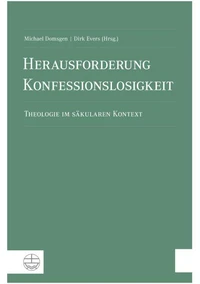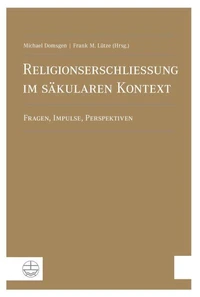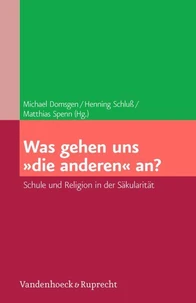Religionspädagogik
Par :Formats :
Disponible dans votre compte client Decitre ou Furet du Nord dès validation de votre commande. Le format ePub est :
- Compatible avec une lecture sur My Vivlio (smartphone, tablette, ordinateur)
- Compatible avec une lecture sur liseuses Vivlio
- Pour les liseuses autres que Vivlio, vous devez utiliser le logiciel Adobe Digital Edition. Non compatible avec la lecture sur les liseuses Kindle, Remarkable et Sony
 , qui est-ce ?
, qui est-ce ?Notre partenaire de plateforme de lecture numérique où vous retrouverez l'ensemble de vos ebooks gratuitement
Pour en savoir plus sur nos ebooks, consultez notre aide en ligne ici
- Nombre de pages604
- FormatePub
- ISBN978-3-374-05927-0
- EAN9783374059270
- Date de parution18/11/2019
- Protection num.Digital Watermarking
- Taille2 Mo
- Infos supplémentairesepub
- ÉditeurEvangelische Verlagsanstalt
Résumé
Religiöse Lehr- und Lernprozesse angemessen wahrzunehmen und sie in der Profilierung christlich motivierten Lehrens und Lernens handlungsorientierend zu beschreiben, ist Ziel der von Michael Domsgen vorgelegten Religionspädagogik. Der Hallenser Religionspädagoge entfaltet den Gegenstand in problemgeschichtlicher, empirischer und komparativer sowie systematischer Perspektive, bevor er vor dem Hintergrund gegenwärtiger Herausforderungen eine Neujustierung von Religionspädagogik als Theorie evangelischen Empowerments vornimmt.
Von dort her beschreibt er religionsdidaktische Perspektiven, die er mit Blick auf die Lernorte Familie, Schule und Gemeinde vertieft. Neben den klassischen Handlungsfeldern (wie z. B. Religions- und Konfirmandenunterricht) finden auch Beispiele zur Vernetzung der Lernorte Berücksichtigung. [Religious Pedagogy] In his publication on religious pedagogy Michael Domsgen aims at a thorough analysis of various processes in religious education.
Furthermore, he aims at their practice-oriented description and at a focus on their Christian profile. The professor at Martin-Luther-University of Halle-Wittenberg presents his subject by combining historical depth, empirical insights, comparisons with other countries and a systematic approach. On that basis, he gives an overview of present challenges in the field and outlines a realignment of religious pedagogy as a theory of Protestant empowerment.
From there, new perspectives on religious education are given, including the settings family, school (e.g. religious education) and parish (e.g. confirmation work) with a special focus on relating them to each other.
Von dort her beschreibt er religionsdidaktische Perspektiven, die er mit Blick auf die Lernorte Familie, Schule und Gemeinde vertieft. Neben den klassischen Handlungsfeldern (wie z. B. Religions- und Konfirmandenunterricht) finden auch Beispiele zur Vernetzung der Lernorte Berücksichtigung. [Religious Pedagogy] In his publication on religious pedagogy Michael Domsgen aims at a thorough analysis of various processes in religious education.
Furthermore, he aims at their practice-oriented description and at a focus on their Christian profile. The professor at Martin-Luther-University of Halle-Wittenberg presents his subject by combining historical depth, empirical insights, comparisons with other countries and a systematic approach. On that basis, he gives an overview of present challenges in the field and outlines a realignment of religious pedagogy as a theory of Protestant empowerment.
From there, new perspectives on religious education are given, including the settings family, school (e.g. religious education) and parish (e.g. confirmation work) with a special focus on relating them to each other.
Religiöse Lehr- und Lernprozesse angemessen wahrzunehmen und sie in der Profilierung christlich motivierten Lehrens und Lernens handlungsorientierend zu beschreiben, ist Ziel der von Michael Domsgen vorgelegten Religionspädagogik. Der Hallenser Religionspädagoge entfaltet den Gegenstand in problemgeschichtlicher, empirischer und komparativer sowie systematischer Perspektive, bevor er vor dem Hintergrund gegenwärtiger Herausforderungen eine Neujustierung von Religionspädagogik als Theorie evangelischen Empowerments vornimmt.
Von dort her beschreibt er religionsdidaktische Perspektiven, die er mit Blick auf die Lernorte Familie, Schule und Gemeinde vertieft. Neben den klassischen Handlungsfeldern (wie z. B. Religions- und Konfirmandenunterricht) finden auch Beispiele zur Vernetzung der Lernorte Berücksichtigung. [Religious Pedagogy] In his publication on religious pedagogy Michael Domsgen aims at a thorough analysis of various processes in religious education.
Furthermore, he aims at their practice-oriented description and at a focus on their Christian profile. The professor at Martin-Luther-University of Halle-Wittenberg presents his subject by combining historical depth, empirical insights, comparisons with other countries and a systematic approach. On that basis, he gives an overview of present challenges in the field and outlines a realignment of religious pedagogy as a theory of Protestant empowerment.
From there, new perspectives on religious education are given, including the settings family, school (e.g. religious education) and parish (e.g. confirmation work) with a special focus on relating them to each other.
Von dort her beschreibt er religionsdidaktische Perspektiven, die er mit Blick auf die Lernorte Familie, Schule und Gemeinde vertieft. Neben den klassischen Handlungsfeldern (wie z. B. Religions- und Konfirmandenunterricht) finden auch Beispiele zur Vernetzung der Lernorte Berücksichtigung. [Religious Pedagogy] In his publication on religious pedagogy Michael Domsgen aims at a thorough analysis of various processes in religious education.
Furthermore, he aims at their practice-oriented description and at a focus on their Christian profile. The professor at Martin-Luther-University of Halle-Wittenberg presents his subject by combining historical depth, empirical insights, comparisons with other countries and a systematic approach. On that basis, he gives an overview of present challenges in the field and outlines a realignment of religious pedagogy as a theory of Protestant empowerment.
From there, new perspectives on religious education are given, including the settings family, school (e.g. religious education) and parish (e.g. confirmation work) with a special focus on relating them to each other.

